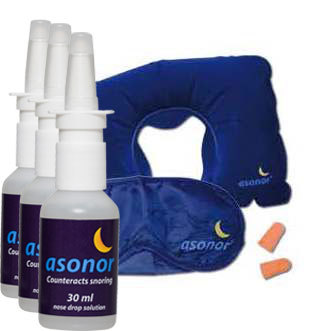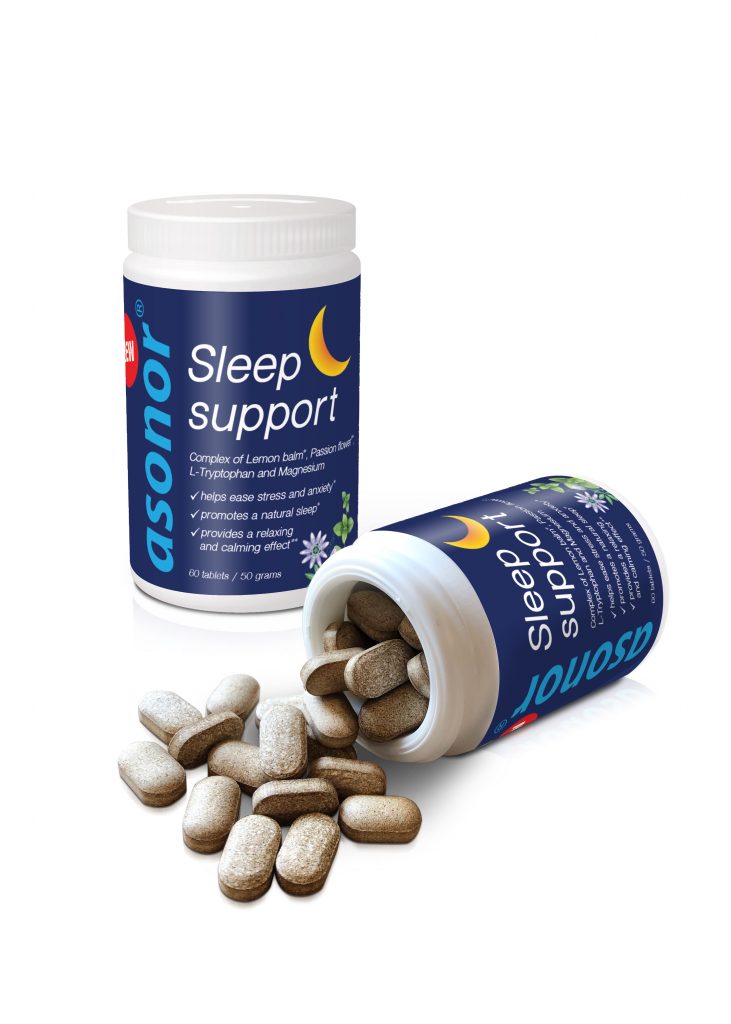What is Newborn Snoring?
Oftentimes, newborns breathe noisily when they sleep. It may be caused due to extra mucus or dryness in their tiny nasal passages. However, if you notice your newborn baby actually snoring on a regular basis, consult with a doctor.
If your snoring is causing issues with your partner or his/her snoring is irritating you at night, it is important that you seek timely medical assistance. Snoring has been seen not only in adults but in children too. Although the reasons to snore vary, but if your child has been snoring occasionally or even regularly, it is important to seek the services of a medical professional to delve into the root cause of it.
Whether it is an adult or child, snoring isn’t normal. You need to find the reason behind it to get it treated accordingly. And it’s safe to say that snoring can be extremely annoying, especially if you’re the partner of a frequent snorer. There are certain facts and statistics about snoring that Tanner Medico, the creators of Asonor Anti-snoring Spray Solution are well aware of. First and foremost, snoring affects approximately 25% of the US population – 40% of which are men and 24% are women. Furthermore, it not only affects all age groups, but in most cases, it tends worsen with age.
Interestingly enough, a small percentage (10%) of snorers are children, including infants and toddlers. Is this something to be concerned about? In most cases, no. If you’ve ever slept close to a newborn or toddler, you already know that they cough, cry, grunt, laugh, and even snore while they sleep. Thus, if have concerns about your baby snoring, the following will explain what you need to be aware of, from the causes and effects of snoring to some solutions that enable them to sleep safer.
What We know about Baby Snoring
When newborns are sleeping, their breathing can get pretty noisy. In many instances, this breathing sounds like snoring while in other cases, it actually is. In most cases, this isn’t a reason for concern and isn’t a sign of something potentially dangerous. Keep in mind that a newborn’s nasal passages are considerably smaller than an adult’s. So the slightest bit of dryness or mucus can cause noisy breathing and snoring. Luckily, as they grow, their noisy breathing usually gets quieter. However, if there are any seasonal allergies, the baby or an infant might snore more.
Unless he or she is crying, an infant has to breathe through their nose. Furthermore, their airways are so small that it’s not uncommon to hear them breathe while they sleep. According to Providence Mission Hospital pediatrician, Jonathan Maynard, MD (located in Orange County, California), soft snoring is very common in infants and toddlers. In fact, one study concluded that 9% of newborns snore a minimum of 3 nights per week. Overall, baby snoring doesn’t disturb the infant’s sleep.
Is snoring normal for newborns?
Most babies breathe noisily, and that might sound like snoring. As per the published study, ‘Prevalence of Snoring and Associated Factors in Infancy’ in Sleep Med. 2011, about 9% of all newborns snore at least thrice a week, while snoring softly is common with newborns and is usually harmless. However, if the snores are loud, the baby has high pitch breathing or has persistent respiratory distress, you need to consult with a doctor.
Causes of Snoring in Newborns?
As mentioned, soft snoring in babies is normal and usually goes away as they grow up. However, these might be some reasons for the babies to snore:
- Laryngomalacia: Most babies have a soft larynx and when they breathe, it tends to vibrate more as they inhale and exhale, causing noisy breathing or snoring in newborns. It improves as they grow up. It is not a cause of concern.
- Nasal congestion: Additionally, another reason for newborn snoring is nasal congestion due to allergies or respiratory infections. Inflammation in the respiratory tract can make it difficult to breathe and leads to snoring.
- Dry sleeping environment: Another reason for your newborn to snore is dry air in the room or there are pollutants in the air. It can lead to dry nasal passages and noisy breathing.
- Physical abnormalities: Some babies that have a deviated septum or inflamed adenoids may be snoring, as well.
There are additional factors that can elevate your infant’s or toddler’s risk of snoring in addition to anatomical anomalies and genetic conditions, one of which is feeding your newborn formula. Research has suggested that bottle-feeding elevates the risk of snoring while breastfeeding helps to prevent it. Additionally, if one or both parents smoke, this can increase your infant’s or toddler’s risk of snoring as it can inflame or irritate their airway.
Difference Between Normal Snoring and Breathing Problems in Babies
Normal snoring is due to soft larynx, allergies, respiratory infection or dry sleep environment. Usually, termed as noisily breathing, the babies outgrow it as they grow up. Sometimes, snoring in babies can be a cause of concern. When they snore regularly for over 3 months, it is a sign of sleep disorder with severe health consequences. OSA or Obstructive Sleep apnea is one of the major concerns, as it affects the oxygen levels during sleep. Additionally, irregular or rapid breathing, choking or gasping when asleep can be a serious sign of this health issue.
Possible Side Effects of Snoring in Infants and Toddlers
As a precaution, you should take your infant or toddler to a hospital ER or urgent care facility immediately if they are experiencing respiratory distress (breathing faster or harder than normal) if:
- their nostrils flare as they breathe
- their skin is turning blue
- there is a noticeable retracting of skin between their ribs
If they haven’t shown signs of respiratory distress but you’re still concerned about the effects of snoring on your infant or toddler, see your pediatrician, especially if they are:
- constantly tired despite regular napping and sleeping
- experiencing recurring throat infections
- frequently pulling away from the bottle or breast in order to breathe
- having breathing difficulties
- still snoring as they get older
You should also consider discussing the following signs or symptoms with a pediatrician if you’ve noticed:
- choking or gasping while sleeping
- extreme restlessness during sleep
- long pauses between breaths as they sleep
All of the above effects of snoring and signs or symptoms could be an indication of an anatomical anomaly, chronic health condition, or sleep disorder, and require evaluation by a pediatrician. It helps to notice the signs early for a faster diagnosis.
Common Treatments and Solutions for Newborn Snoring
If the newborn is mildly snoring, or has noisy breathing patterns, here are a few tips to help your baby:- Using humidifier: To eliminate dryness in the air, use a humidifier in the sleeping area to keep the air moist. It will help the baby breathe better and alleviate snoring.
- Use a pillow: Adjusting the sleeping position can help your baby sleep better without snoring. Use a pillow to elevate the head to open the airway.
- Treatment for allergies: If sinus issues or allergies are leading to your newborn to snore, over the counter medication or seeing a doctor can help.
- Saline sprays and nasal drops: These can clear the mucus from the nasal passages of the baby and reduce snoring considerably.
Home Remedies for Baby Snoring
For newborns, it is difficult to do breathing exercises or use a neti pot to clear the nasal passages. However, here are some quick tips to alleviate snoring in babies:
- Adjust sleeping position by using a pillow
- Use saline sprays to clear mucus
- Eliminate dry air in the room, by using humidifier
- Treat allergies that lead to blocked nasal passages
What can You do?
As a possible solution for snoring, Asonor Anti-snoring Spray Solution has been clinically proven effective in 3 out of every 4 cases studied, especially when congestion is the primary cause. However, we do recommend that you discuss this with your pediatrician before administering it to your child. Although for adults, our product has been exceptionally good with immediate results. It is one of the most popular non-invasive methods to stop snoring. For additional information about this amazing product, e-mail us your questions at [email protected] or if you prefer, visit our website today.
Frequently Asked Questions
1. Is it normal for newborns to snore?
Yes, babies tend to sleep noisily which is often taken to be mild snoring.
2. When should I worry about my baby’s snoring?
If your baby is gasping for breath, has irregular or rapid breathing when asleep or is extremely restless during sleep, you need to seek medical advice.
3. Can snoring be a sign of a medical condition in babies?
Yes, if your baby has been snoring for 3 months regularly, showing signs of respiratory distress or choking/gasping for breath when asleep, it maybe a sign of OSA.
4. What are some home remedies to reduce baby snoring?
Treat seasonal allergies, changing sleep position using a pillow, and adding a humidifier in the sleep area can help reduce newborn/baby snoring.






